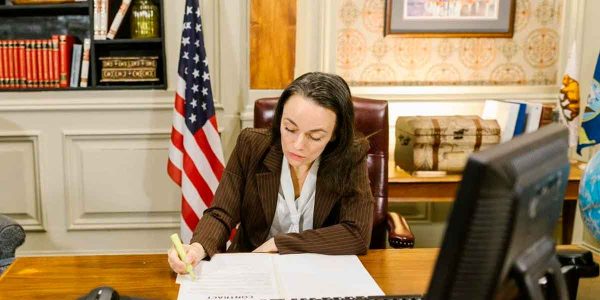Estate attorneys and probate lawyers assist non-lawyer clients in carrying out their duties as executors, personal representatives, or administrators of estates. As they navigate the probate process, they offer them as much or as little assistance as they require. The probate procedure entails paying off the decedent’s debts and allocating the estate’s assets by the will or state law.
The court makes probate to provide the will of the deceased to the rightful owner. The probate court supervises the process. In the process, the legal authority to resolve disputes involving wills and estates.
During the probate process, the court decides whether the will is valid. Additionally, it will name an executor, find and value assets, and pay off the estate’s debts.
What Does A Probate Lawyer Do?
A probate lawyer is capable of performing a wide variety of tasks. What the probate lawyer does will depend on the needs of the executor or administrator, the existence of a will, the complexity of the estate, the presence of legal challenges from beneficiaries or debtors, and other issues relating to the estate’s assets.
When a Will Exists
If the decedent had a last will that was complete, valid, and signed before passing away, the administrator might hire a probate attorney to assist them as they proceed through the steps of the probate process by the terms of the will. This is a consulting position.
One of the challenges is the will, such as if a beneficiary claims to be invalid; the probate attorney may represent a party in probate litigation. If there is a challenge to the will, such as if a beneficiary claims the choice is invalid, was executed under duress, or was the result of undue influence. Someone might want to challenge being left out of a will. A will may be contested for various reasons (although most will go through probate without a problem).
When no will exists
A person is said to have died “intestate” if they did not leave a valid, written will. In that case, who inherits is decided by state inheritance laws. For instance, a surviving spouse may be entitled to all or a portion of their deceased spouse’s assets, depending on their state’s intestate laws. These rules can change a lot.
It’s crucial to remember that both the estate administrator and the probate attorney must distribute assets per state intestacy laws. State law governs the distribution of estate assets, regardless of what the deceased person said while still alive or how much money some family members need.
In this case, a probate attorney could assist a loved one in petitioning the court to be appointed as the estate administrator. Alternatively, an individual hires a probate lawyer after a probate court judge hires the administrator.
A relative must first obtain “renunciations” from the deceased’s other relatives to administer the estate. A renunciation is a formal declaration that gives up the right to manage the estate.
What is a probate lawyer’s job?
- A probate lawyer offers legal counsel as well. Executors and administrators frequently rely more on the local probate attorney and their staff when they are out of state. Some law firms focus on offering comprehensive services specifically for this situation.
- Locate, list, and secure the decedent’s estate, including their bank accounts (savings and checking), personal property (also known as real property), vehicles, real estate, and more.
- Recognize and pay for life insurance policies.
- Obtain valuations for the deceased person’s property
- Control the estate’s bank account.
- To prepare the deceased person’s final income tax return and estate, open a tax account or work with an internal account.
Fees of A Probate Lawyer
The court may charge a percentage of assets as a probate fee. For example, in Maharashtra, purchases under 50,000 are subject to a court fee of 25, assets between 50,000 and 2 lacks are subject to a court fee of 4, and investments over two lahks are subject to a court fee of 7.5 percent. There is a cap of $75,000 available.
States have different probate laws. For instance, California uses a streamlined process to pass estates under a certain threshold to heirs. The heirs may request that the court “set aside” the estate if the property’s value is less than $20,000. There is a requirement to fill out the form.
The heirs may file a declaration requesting the distribution of the estate if the estate has a value of $166,250 or less. This is less complicated than the entire probate procedure but a little more complicated than the procedure for a smaller estate.
Probate alternatives
Depending on the state law and the types of assets involved, it may be possible to avoid probate in many situations. As tenants in common, for instance, spouses may own property together. If one spouse dies, the other spouse might take over as the only property owner.
The court frequently permits the designation of beneficiaries in investment accounts and insurance policies. Therefore, beneficiaries have the right to these accounts’ assets without going through probate.
The probate court transfers the revocable living trust to the designated successor trustee listed in the trust documents. Before the trust maker’s passing, any assets transferred into the trust were not subject to probate.
Conclusion
The legal procedure known as “probate” ensures the property to the rightful people. “estate” refers to a person’s assets and possessions divided after death. The state and county where the deceased person resided at the time of their death will host the probate proceedings.







